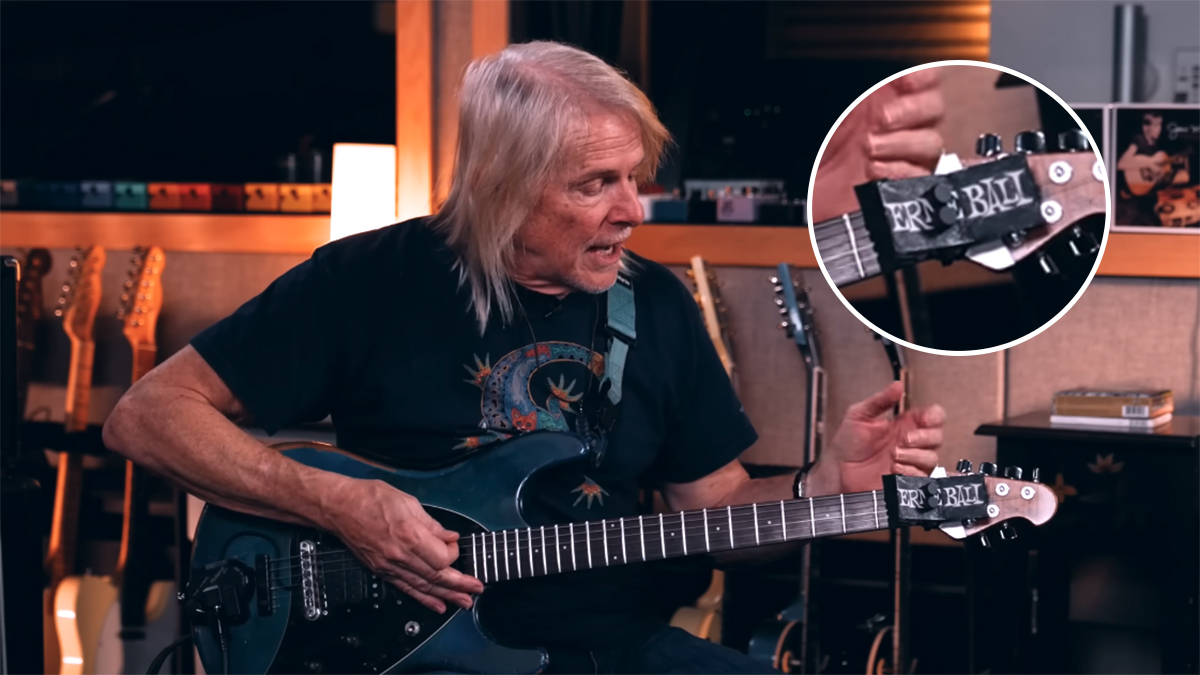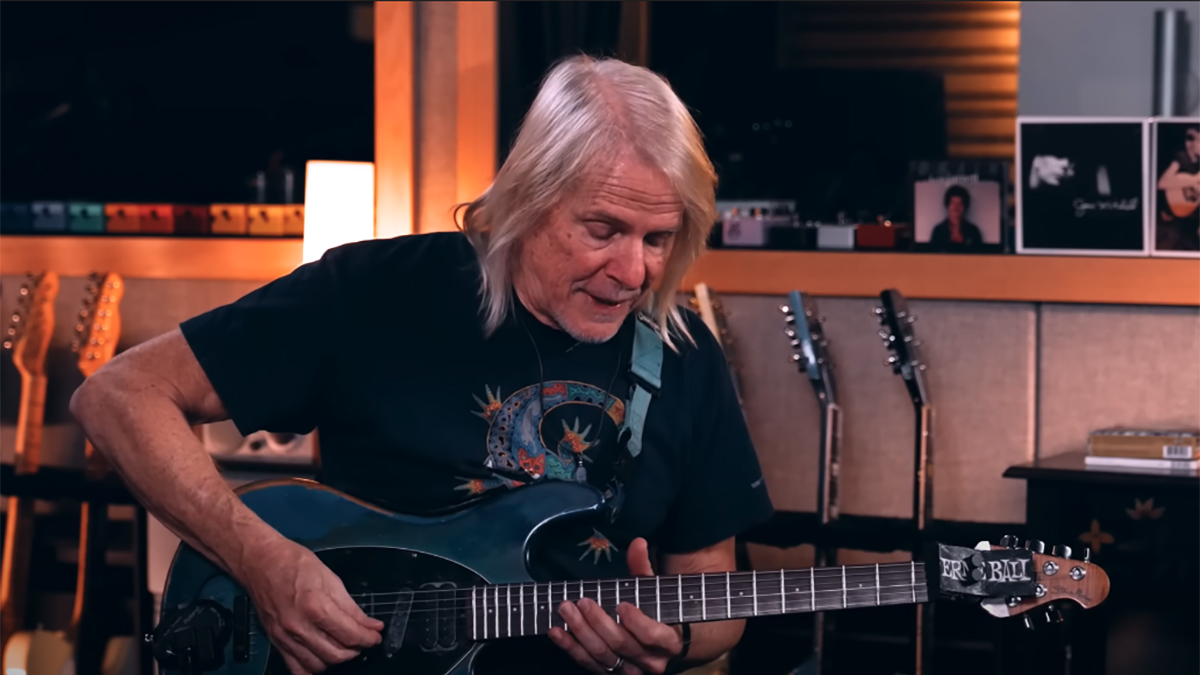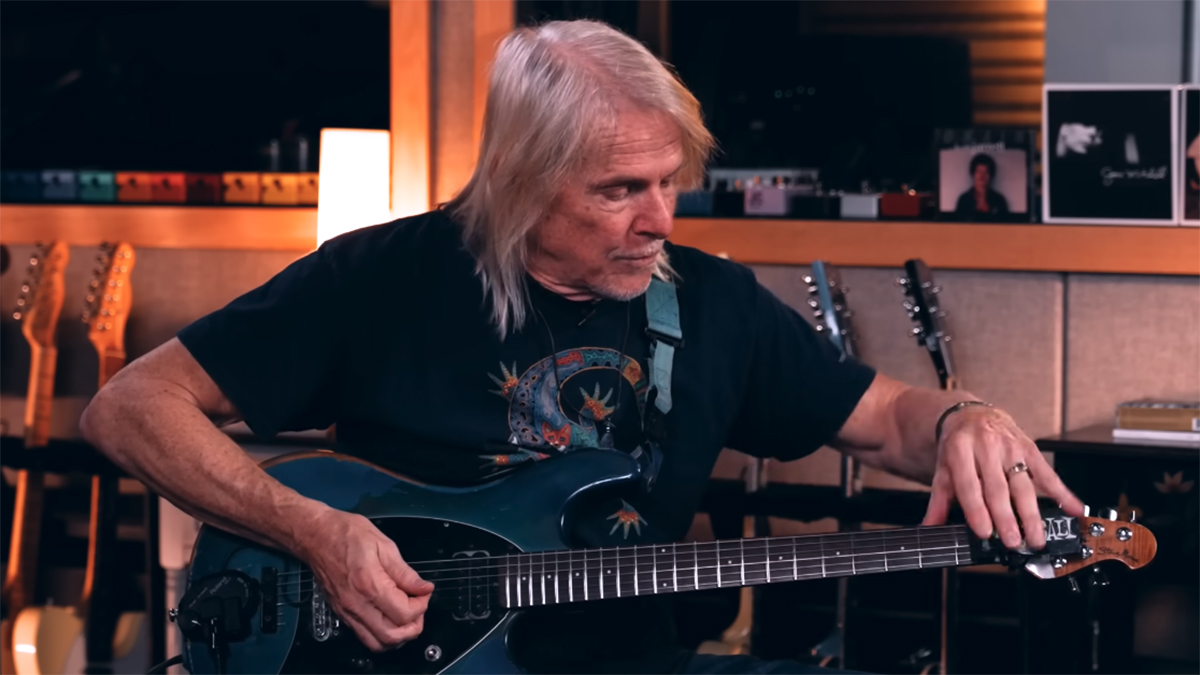
A full-on, decades-long career playing with the likes of Deep Purple and Dixie Dregs – as well as a genetic predisposition to arthritis – has meant electric guitar virtuoso Steve Morse has been playing through considerable pain in recent years.
A particular problem area can be found in the picking hand. Specifically, at the top of the right-hand wrist, which has been the driving force behind Morse’s virtuosic picking style – an approach defined by both its breakneck speed and multi-functionality, from dual harmonic picking to subtle single-finger string muting.
But such relentless playing over the years has taken its toll on Morse, who has now been forced to adapt his technique in a number of different ways in order to replicate the sounds and reach the speeds that have underpinned his career.
Speaking to Rick Beato, Morse recently revealed how such a stylistic shift has materialized in the form of not just physical changes to the ergonomics of his playing, but also as an innovative new gadget that Morse himself designed to help with string muting.
Said device looks to be an evolution of the standard fret wrap, which Morse has fashioned in such a way that it can easily be snapped on and off depending on the situation.
When asked about how his current technique differs from his old style, Morse explained how greater stress was placed on his right-hand wrist as a result of his picking approach, which saw the guitarist angle his wrist and ‘bridge’ over the strings using his pinky finger.
“It made this kind of movement, and I practiced about 10,000 notes a day for decades,” he said. “And my genetic history of arthritis led me to where these bones don’t have the cartilage anymore, and then they get worn away so they’re ‘diseased’ and very painful.
“But rather than roll over and die, I’m like, ‘No, I still want to play.’ There’s a way to do it. So, what can I do? For the muting, I’m still working on some solutions but up here [headstock] I’ve made a device so that when I’m playing up high… it’s muting it for me.”
At this point, Morse demos the sponge-like, Ernie Ball-branded gizmo, which seems to use the locking nut as a rocking point for attaching and reattaching to the strings.
When quizzed whether this was his own invention, Morse elaborated, “It’s obviously been done before, but I invented a different way of making the structure and making it more immediate.” Beato puts it quite nicely, likening it to a “Hipshot tuner but for muting”.


Aside from the impressive piece of innovation, Morse has also had to alter his actual playing style in order to play around the pain. For example, for particularly busy picking passages, Morse now opts for fingerpicking rather than alternate picking, even if “it doesn’t sound the same”.
Another adaptation involves ditching rocking wrist movements altogether, and instead relying on a sweeping motion from the elbow to accommodate speedy, alternately picked solo lines.
“I’m very busy switching things around and being mindful of what’s necessary for each tune,” Morse summarized.
Later on, Morse and Beato discussed the origins and onset of the former Deep Purple guitarist’s wrist pain problems, which have been particularly troubling for the past 10 years.
A sports doctor looked at it and he was laughing at me. He said, ‘Why do you have so much arthritis?’
“I had shooting pains for a long time, but I always thought it was ligaments and tendons that I’d strained earlier,” he reflected. “And it had been those injuries, too. I’ve got it all. Whatever you can get from playing for half a century relentlessly.
“I thought it was soft tissue stuff that would be fixable. A sports doctor looked at it and he was laughing at me. He said, ‘Why do you have so much arthritis? You’re too young for this.’ He said, ‘Yeah, you got a problem.’
“I went up to Harvard medical and said, ‘Can you guys do something, and give me some cartilage?’ They said, ‘No, it would be like a tumor if we do. But we can fuse your bones.’”
Though Morse didn’t go ahead with the op, he let the principle inform his playing: “I thought, ‘I could play that way, I guess,’ and that’s what I chose to do: fuse the bones in my wrist for most of the strenuous stuff.”
Head over to Rick Beato’s YouTube channel to watch the full interview with Steve Morse.







